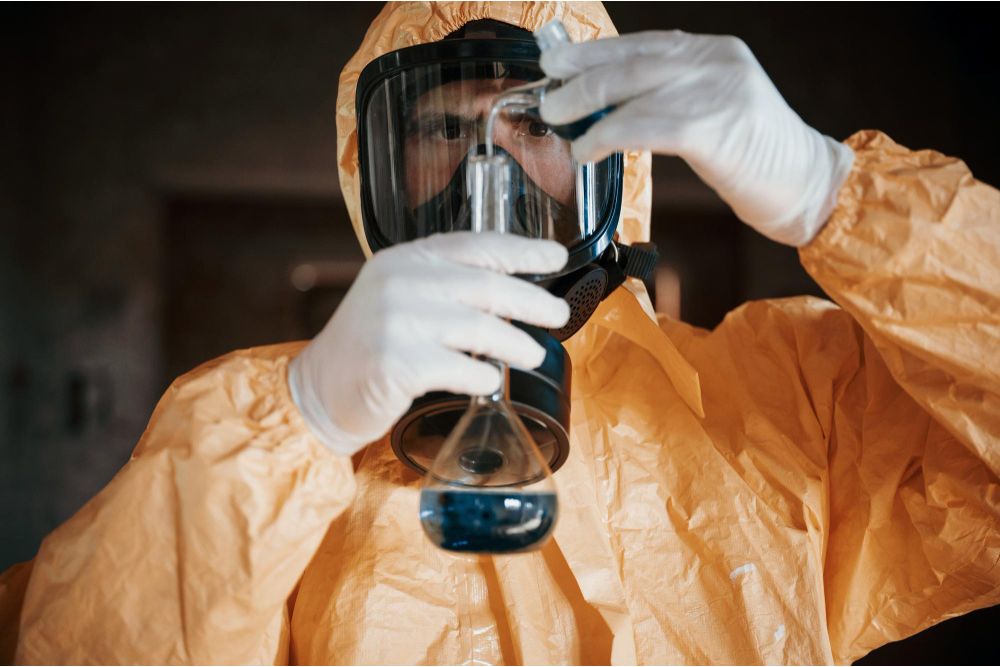CORCON Institute’s Guide to Reliable Corrosion Testing Methods

At the CORCON Institute of Corrosion (CIC), established in 2014, we are dedicated to advancing the field of corrosion awareness and protection. Our mission encompasses promoting best practices in corrosion control through comprehensive education, training, and research. Effective corrosion testing methods are pivotal in safeguarding materials and structures from degradation, ensuring their reliability and longevity. In this guide, we share essential tips on corrosion testing methods to help professionals and organisations enhance their corrosion management strategies. By applying these methods correctly, you can achieve more accurate results, leading to better-informed decisions and improved corrosion protection outcomes.
Choose the Right Testing Method for Your Material
Different materials and environments require specific corrosion testing methods to ensure accurate results. For metals, methods such as salt spray testing, electrochemical impedance spectroscopy, and potentiodynamic polarisation are commonly used. For non-metallic materials, methods like immersion testing and UV exposure might be more appropriate. Understanding the material’s properties and the type of corrosion it might face will help in selecting the most effective testing method.
Ensure Proper Sample Preparation
The accuracy of corrosion testing methods heavily depends on the preparation of samples. Clean and prepare samples by removing any surface contaminants, coatings, or rust before testing. Proper surface preparation ensures that the results reflect the material’s natural resistance to corrosion rather than artefacts introduced by surface conditions. Additionally, use consistent preparation techniques across all samples to ensure uniformity and comparability in test results. This step is crucial for obtaining reliable data that accurately represents the material’s performance in real-world conditions.
Regular Calibration of Equipment
To obtain reliable results, regularly calibrate the equipment used for corrosion testing methods. Equipment such as potentiostats, corrosion cells, and salt spray chambers should be calibrated according to the manufacturer’s guidelines or industry standards. Regular calibration helps maintain accuracy and consistency in test results, which is crucial for assessing corrosion performance accurately.
Monitor Environmental Conditions
The environment in which corrosion testing methods are performed can significantly impact the results. Factors such as temperature, humidity, and exposure to chemicals should be closely monitored and controlled. Maintaining consistent environmental conditions ensures that test results are reproducible and reflective of real-world scenarios. Variations in these conditions can lead to inaccurate or inconsistent results, making it crucial to standardise the testing environment for reliable data. Regularly calibrating environmental controls and documenting conditions during tests will further enhance the reliability and validity of the results.
Document and Analyse Results Thoroughly
Accurate documentation and analysis of corrosion testing results are vital for understanding material performance and making informed decisions. Record all relevant details, including test conditions, sample preparation, and observed results. Analyse the data comprehensively to identify patterns, weaknesses, and areas for improvement in corrosion resistance.
Utilise Corrosion Testing Standards and Guidelines
Adhering to established standards and guidelines is essential for effective corrosion testing methods. Refer to standards from organisations such as NACE International (now AMPP) and ASTM International to ensure that testing procedures are up-to-date and comply with industry best practices. This adherence helps in achieving reliable and comparable results across different studies and applications.
Frequently Asked Questions
What is the importance of selecting the right corrosion testing method?
Selecting the right corrosion testing method is crucial for obtaining accurate results. Different materials and environments require specific testing methods to reflect their true resistance to corrosion. Choosing an appropriate method ensures that the results are relevant and reliable, leading to better-informed decisions for corrosion management.
How should samples be prepared before corrosion testing?
Proper sample preparation is essential for accurate corrosion testing. Samples should be cleaned to remove surface contaminants, coatings, or rust before testing. Consistent preparation techniques should be used to ensure uniformity and comparability of results. This step ensures that the results accurately reflect the material's resistance to corrosion.
Why is regular calibration of equipment necessary for corrosion testing?
Regular calibration of corrosion testing equipment, such as potentiostats and salt spray chambers, ensures accuracy and consistency in test results. Calibration according to manufacturer guidelines or industry standards helps maintain the precision of measurements, which is crucial for evaluating corrosion performance.
What environmental conditions should be monitored during corrosion testing?
Environmental conditions such as temperature, humidity, and exposure to chemicals should be closely monitored and controlled during corrosion testing. Maintaining consistent conditions ensures reproducibility and accuracy of test results, as variations can lead to inconsistent or inaccurate data.
Closing Insights

Implementing effective corrosion testing methods is crucial for the successful management and prevention of corrosion-related issues. At the CORCON Institute of Corrosion (CIC), we emphasise the importance of selecting the right testing methods, preparing samples meticulously, and adhering to established standards.
By following the tips outlined above, you can ensure accurate and reliable test results, which are essential for developing effective corrosion protection strategies. For further insights and support in corrosion management, we invite you to explore our resources, attend our events, and engage with our community. The CIC is committed to advancing corrosion awareness and control globally, helping you achieve excellence in your corrosion testing and protection efforts.
Image Reference: Freepik
Disclaimer: All trademarks, logos, and brand names are the property of their respective owners. All company, product, and service names used in this website are for identification purposes only. Use of these names, trademarks, and brands does not imply endorsement.